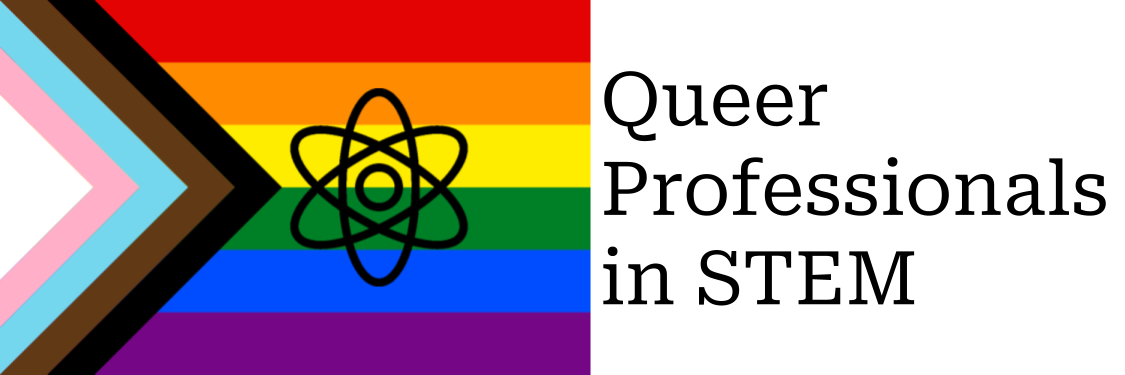Alan Turing, PhD (1912-1954)
"Be kind, resourceful, beautiful, friendly, have initiative, have a sense of humour, tell right from wrong, make mistakes, fall in love, enjoy strawberries and cream, make someone fall in love with it, learn from experience, use words properly, be the subject of its own thought, have as much diversity of behaviour as a man, do something really new." - Alan Turing, on arguments against the hope of artificial Intelligence. From MIND : A Quarterly Review of Psychology and Philosophy
Alan Turing was born on June 13 1912. He was a mathematician and computer scientist. Turing is credited with providing foundation and new concepts of algorithms, artifical intelligence, and computer science. After graduating with his PhD from Princeton University in 1938, he went on to work for the Government Code and Cypher School during World War II. He developed theroies and machines to break German codes. He is credited as a cruical player in many Axis power fights, most notably the Battle of the Atlantic.
After World War II, Turing went on to develop the Automatic Computing Engine, one of the earlist serial stored computer program. He also began to do more abstract work, addressing artifical intelligence. Turing attempted to create a standard to compare machine and human intelligence. This standard became known as the "Turing Test". The Turing Test is a test that can determine if a machine could think like a human. To pass the Turing Test, the machine must make a human test subject guess that it is a human under specific situations and conditions.
In 1952, Turing's house was broken into. When Turing reported this crime to the police, he told the police that he knew the burgler, it was a man he was in a relationship with. Both Turing and the burgler were charged with "gross indecency" because homosexual acts were illegal at this time. Turing pled guilty to the crime and was convicted. For his conviction, he was given a choice of imprisionment or probation. His probation included a chemical castration process. This conviction also removed his security clearance and he could no longer work for the government. Two years later, Turing died in his home. There was a small, rushed investigation. He had died from cyanide poisioning and it was ruled a suicide.
In 2009, Prime Minster Gordon Brown apologized for the Turing's prosecution, but he was not pardoned from this conviction until 2013 when Queen Elizabeth the II signed the pardon that had been argued about since 2009.
Read more about Alan Turing, PhD:
Alan Turing Biography | Britannica
Alan Turing | Biography
How Alan Turing Cracked the Enigma Code
Letter from Turing to his Parents, talking about his idea for a typewriter
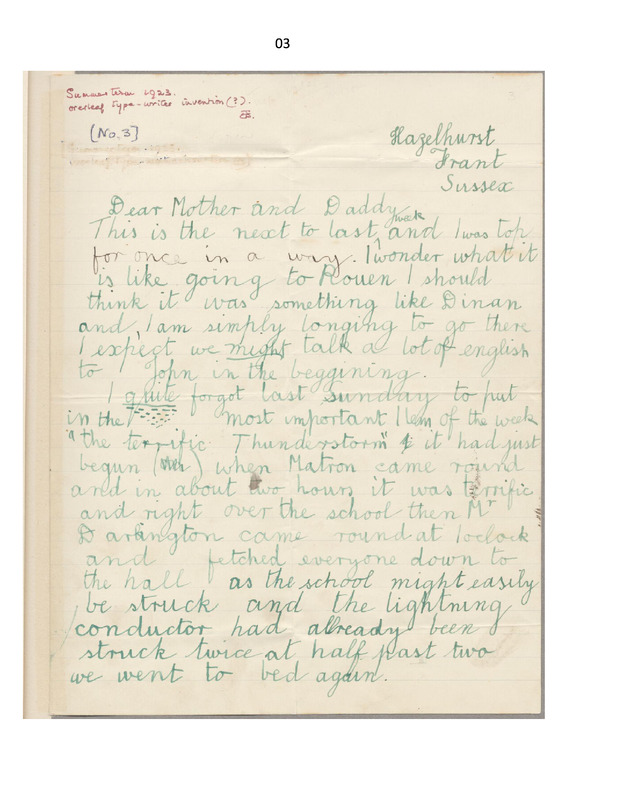
- Title
- Letter from Turing to his Parents, talking about his idea for a typewriter
- Creator
- Alan Turing
- Date
- 1923
- Description
- A handwritten letter from Turing to this parents. In the letter he describes and diagrams an idea for a typewriter he has.
- Format
- Rights
- This Item is protected by copyright and/or related rights. You are free to use this Item in any way that is permitted by the copyright and related rights legislation that applies to your use. In addition, no permission is required from the rights-holder(s) for educational uses. For other uses, you need to obtain permission from the rights-holder(s).
- https://turingarchive.kings.cam.ac.uk/copyright-and-terms-use
- Source
- https://turingarchive.kings.cam.ac.uk/material-given-kings-college-cambridge-1960-amtk/amt-k-1-3
- extracted text
- Media
 Typewriter letter.pdf
Typewriter letter.pdf
A Transcript of Turing's Lecture: "Can Digital Computers Think?"
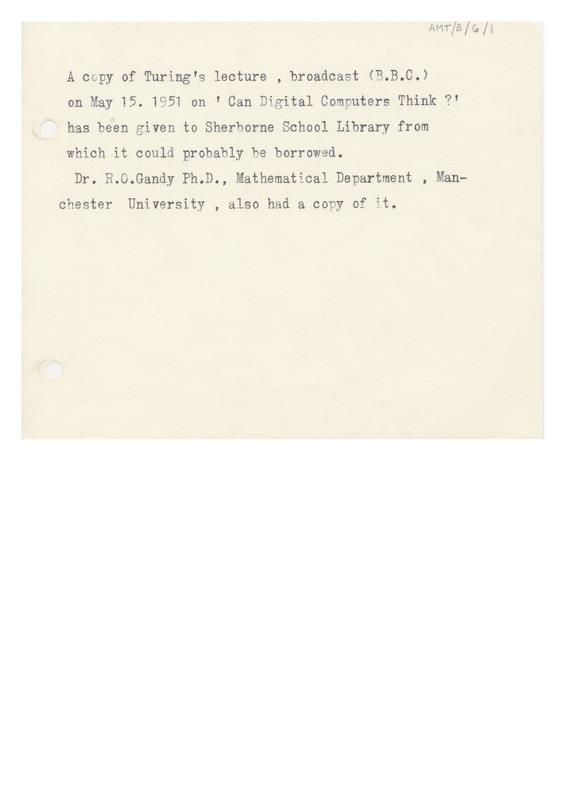
- Title
- A Transcript of Turing's Lecture: "Can Digital Computers Think?"
- Creator
- Alan Turing
- Contributor
- R.O. Grandy
- Date
- May 15, 1951
- Description
- A transcript of Turing's Lecture entitled "Can Digital Computers Think?" broadcasted on the BBC on May 15, 1951.
- Format
- Rights
- This Item is protected by copyright and/or related rights. You are free to use this Item in any way that is permitted by the copyright and related rights legislation that applies to your use. In addition, no permission is required from the rights-holder(s) for educational uses. For other uses, you need to obtain permission from the rights-holder(s).
- https://turingarchive.kings.cam.ac.uk/copyright-and-terms-use
- extracted text
- Media
 amt-b-2-15-9.pdf
amt-b-2-15-9.pdf
Programmers' Handbook for Manchester Electronic Computer Mark II
- Title
- Programmers' Handbook for Manchester Electronic Computer Mark II
- Creator
- Alan Turing
- Date
- 1951
- Description
- Thought to be one of the first computer programming materials, this guide was written by Turing. Although it states Mark II, it was about the Mark I.
- Format
- Rights
- This Item is protected by copyright and/or related rights. You are free to use this Item in any way that is permitted by the copyright and related rights legislation that applies to your use. In addition, no permission is required from the rights-holder(s) for educational uses. For other uses, you need to obtain permission from the rights-holder(s).
- https://turingarchive.kings.cam.ac.uk/copyright-and-terms-use
A Transcript of Turing's Lecture "Intelligent Machinery, A Heretical Theory"
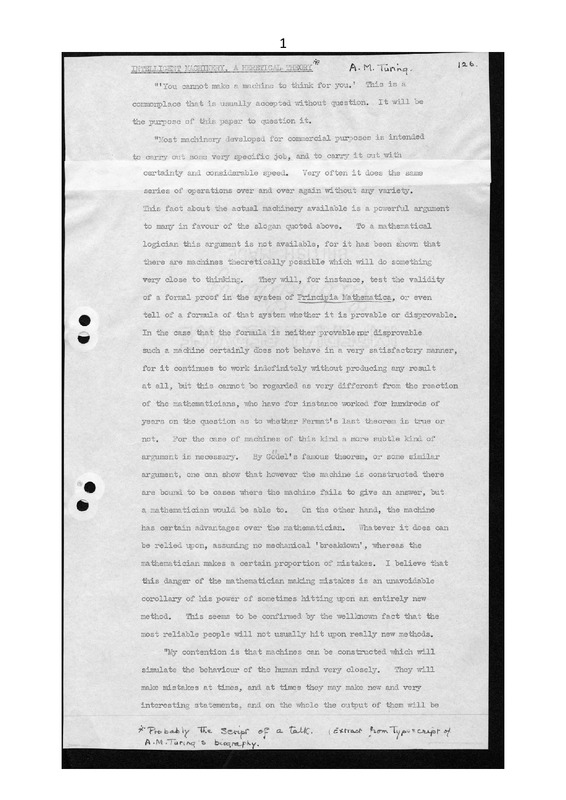
- Title
- A Transcript of Turing's Lecture "Intelligent Machinery, A Heretical Theory"
- Creator
- Alan Turing
- Date
- 1951
- Description
- A transcript of Turing's lecture entitled "Intelligent Machinery, A Heretical Theory" on the radio program "The 51 Society".
- Format
- Rights
- This Item is protected by copyright and/or related rights. You are free to use this Item in any way that is permitted by the copyright and related rights legislation that applies to your use. In addition, no permission is required from the rights-holder(s) for educational uses. For other uses, you need to obtain permission from the rights-holder(s).
- https://turingarchive.kings.cam.ac.uk/copyright-and-terms-use
- extracted text
-
1
2
3
4
5
6
- Media
 amt-b-16-30-9.pdf
amt-b-16-30-9.pdf
Corrected Obituary Material for Turing
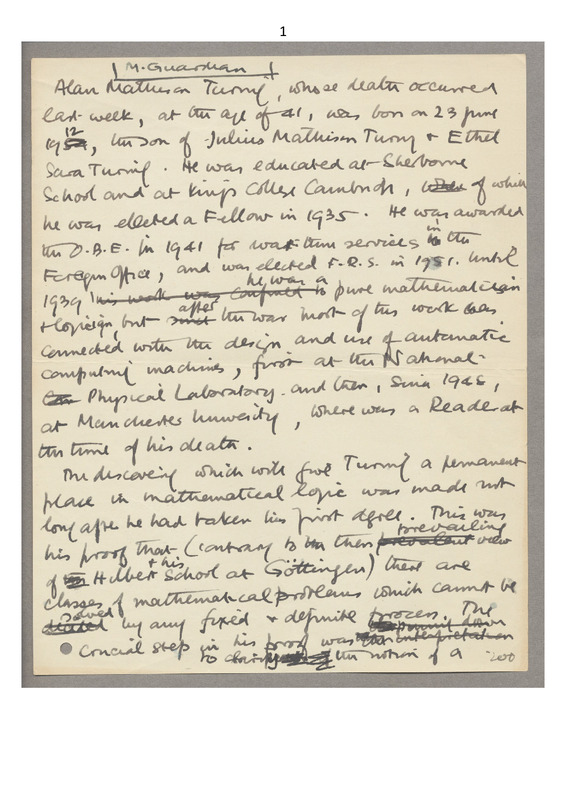
- Title
- Corrected Obituary Material for Turing
- Creator
- M.H.A. Newman & R.O. Grandy
- Description
- Corrected material for Turing's obituary for The Manchester Guardian
- Format
- Rights
- This Item is protected by copyright and/or related rights. You are free to use this Item in any way that is permitted by the copyright and related rights legislation that applies to your use. In addition, no permission is required from the rights-holder(s) for educational uses. For other uses, you need to obtain permission from the rights-holder(s).
- https://turingarchive.kings.cam.ac.uk/copyright-and-terms-use
- extracted text
-
1
1a
1b
2
- Media
 amt-a-5-10-3.pdf
amt-a-5-10-3.pdf
